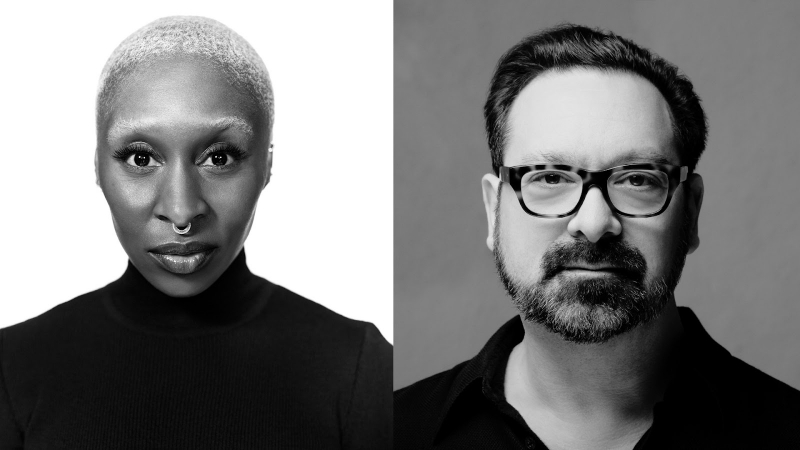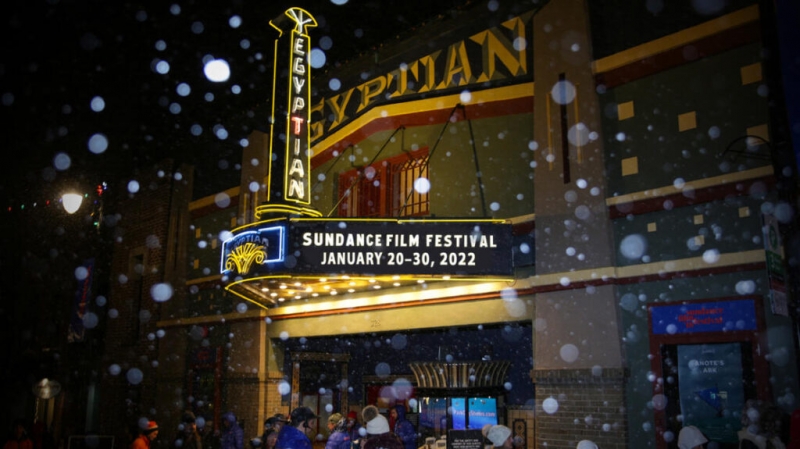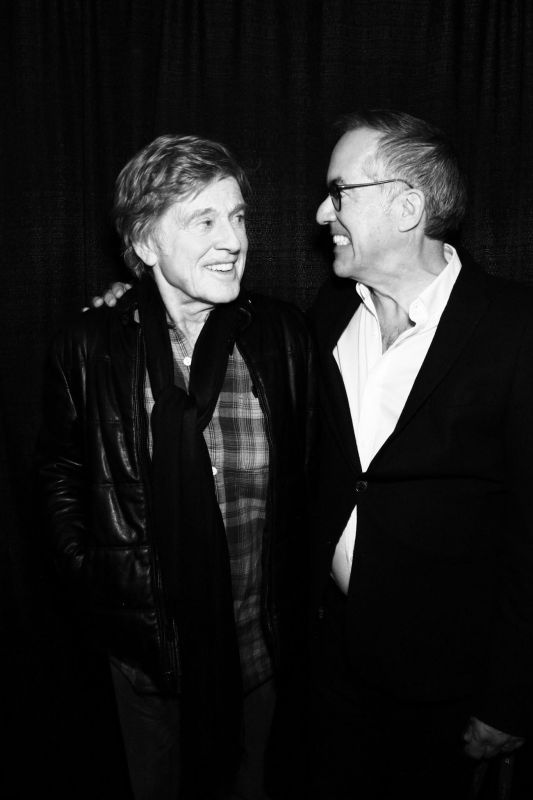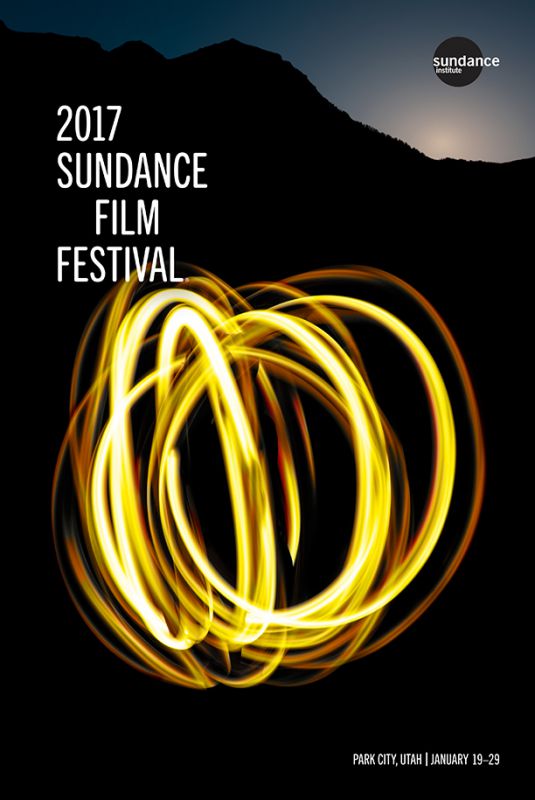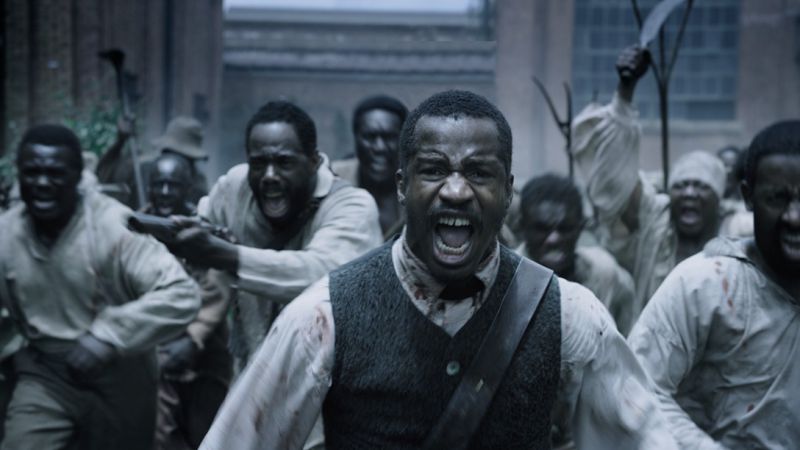
Gun Violence & Documentary Film:
Sundance Institute Names Kendeda Fund Grantees in Collaboration with TIME Studios, Publishes New Field Report
Highlights need for closer collaborations between filmmakers, funders and advocacy organizations
The Sundance Institute today announced recipients of the Sundance Institute | Kendeda Short Film Fund in partnership with TIME Studios, aimed at elevating stories that underline gun violence in popular discourse.
This new initiative, which is an extension of the work The Kendeda Fund has been supporting at Sundance for several years, awards five non-recoupable and unrestricted $50,000 grants to new nonfiction short form work in production. The films showcase a wide range of cinematic approaches and amplify stories that move beyond tragedy reporting, to explore the intersectionality of gun violence with broader pressing issues including racism, police brutality, white supremacy, violence against women and trans rights.
In addition to financial support, each project will receive creative, strategic, and editorial advice from the Sundance Institute Documentary Film Program and TIME Studios teams. Once completed, the shorts will have the opportunity to launch on TIME.com, which reaches a global audience of 90 million people monthly.
“With this initiative, we are thrilled to be able to partner with The Kendeda Fund and TIME Studios to elevate stories that unpack the systemic, social, and structural forces that underlie gun violence,” said Hajnal Molnar-Szakacs, the Institute’s Director, Granting. “In particular, we are excited to be uplifting the voices of artists from communities most affected by gun violence, who have been far too long marginalized, and who have been personally affected by this issue.”
“The Kendeda Fund applauds Sundance and TIME Studios for investing in artists and filmmakers who are willing to speak truth about the role of guns in America,” said David Brotherton, Fund Advisor for Kendeda’s gun violence prevention program. “We also hope this project will encourage other foundations to recognize the unique power of documentary storytelling to inform and inspire change as we confront the public health crisis of gun violence."
“To fully understand this epidemic of gun violence, we need to continue to probe both its root cause and its impact in communities across the United States,” said Rebecca Teitel, Executive Producer for TIME Studios. “Through our partnership with the Sundance Institute and the Kendeda Fund, TIME is redoubling its commitment to covering this complex issue, and we are proud to support these talented filmmakers whose work provides powerful new perspectives on this ongoing national crisis.”
Today also marks the release of “Nonfiction Storytelling on Gun Violence in the US: Where We've Been And Where We Can Go,” a report commissioned by the Sundance Institute and conducted by an independent team of researchers on gun violence and documentary film. This in-depth piece of research led by Eliza Licht, Will Jenkins, Michon Boston and Alice Quinlan highlights key learnings for filmmakers, funders, and advocacy groups working at the intersection of gun violence and storytelling.
Some of the report’s main takeaways include:
-
a deeper understanding of the intersections of race, guns and gun violence prevention
-
the value of centering stories about community-based solutions
-
an embrace of complexity and a broad narrative frame beyond what is typically considered a ‘gun violence prevention film,’ for filmmakers and issue funders alike
-
the importance of empowering BIPOC film teams and participants with lived experiences, while providing appropriate mental health support, to prevent teams and participants from being retraumatized.
“Our hope is that this work will contribute to generate more equitable collaborations among stakeholders, grounded in partnerships with the communities most affected by gun violence.” said Paola Mottura, Sundance Institute’s Director, Documentary Film Fund.
The Sundance Institute | TIME Studios Short Film Fund Grantees are:
House of Tulip
Director: Cydney Tucker
Producer: Cydney Tucker
House of Tulip follows two Black trans activists as they run for office and work to build Louisiana’s first housing refuge that provides residency solely for trans and gender non-conforming residents. We’ll follow the founders as they fight to use their organization to protect and build community in a state with one of the highest gun-related murder rates in the country. Their journeys will highlight the dangerous, yet beautiful, reality of what it means to be Black trans women in the deep South.
Cydney Tucker
Cydney Tucker is a journalist and documentary filmmaker currently based in Atlanta. She has written and produced content for a variety of legacy and digital media organizations including The New York Times, CBS News, NBC News, Al Jazeera International (AJ+), and RYOT Studio. Cydney is presently working on a film for The New York Times Presents's Hulu/FX documentary series. Her current personal projects include producing limited documentary videos and photo-series capturing Black Joy.
Women Count
Director: Davina Pardo
Producers: Davina Pardo, Alisa Payne
A school nurse in Texas is on a mission to count every woman killed by a man in the United States since 1950. Her campaign reveals staggering numbers, a painful history, and a woman haunted by forgotten victims.
Davina Pardo
Davina Pardo is an Emmy®-award winning filmmaker who produced the HBO documentary VERY SEMI-SERIOUS. She is the director of several award-winning documentary shorts -- 116 CAMERAS (POV, New York Times Op-Docs), MINKA (True/False, Hot Docs, Full Frame, Sheffield Doc/Fest, Aspen Shortsfest, Cinema Eye & ID), and BIRDLINGS TWO (Toronto International Film Festival, Tribeca) -- for which she’s been nominated for Cinema Eye Honors and IDA Awards and shortlisted for the Academy Awards.
Alaskan Son
Director: Joshua Albeza Branstetter
Producers: Samantha Eyre-Harrison, Joshua Albeza Branstetter
Indigenous people comprise 15% of Alaska's population, yet 30% of the police killings. The city of Fairbanks is 4% of Alaska's population, yet approximately 25% of the state’s police killings occur there. This is the story of 20-year-old Inupiaq man Cody Dalton Eyre, who went for a walk in Fairbanks, Alaska.
Joshua Albeza Branstetter
Joshua Albeza Branstetter is a Filipino-American filmmaker and photographer living in Anchorage, Alaska. His documentary work focuses on themes of cultural reclamation, personal identity, and social justice. He founded Branstetter Film in 2016 with a vision of telling courageous Alaskan stories with authenticity and intimacy. Josh is a founding member of Alaska APIDA, and received a 2020 Rasmuson fellowship for his work with Absolute Zero: a multi-disciplinary arts team uplifting survivors of abuse throughout Alaska.
SOL
Directors: Emily Cohen Ibañez & Débora Souza Silva
Producers: Emily Cohen Ibañez & Débora Souza Silva
Food Justice is racial justice. A woman, a city, and a community dream of transforming East Oakland from an epicenter of gun violence to a hub for food sovereignty. SOL is a hopeful story of one woman’s transformation from incarceration to rejuvenation, after spending 16 years in prison for killing a man.
Emily Cohen Ibañez
Emily Cohen Ibañez is a Latinx filmmaker based in Oakland who earned her doctorate in Anthropology (2011) with a certificate in Culture and Media at New York University. Her film work pairs lyricism with social activism, advocating for labor, environmental, and health justice. Her feature documentary debut, Fruits of Labor had its World Premiere at SXSW 2021. During the pandemic, she saw an increase in gun violence in her neighborhood and feels an urgency to find progressive solutions.
Débora Souza Silva
Débora Souza Silva is a documentary filmmaker whose work examines systemic racism and inequality. Her work has been featured by the New York Times, PBS, BBC, Reveal, and Fusion. She started her career as a television reporter in Brazil before moving to California to pursue a Masters in Journalism at UC Berkeley.
KJ (working title)
Director: Joe Namy
KJ is a cinematic memoir exposing the systemic injustice that led to the murder of Khalid Jabara in Tulsa, Oklahoma in 2016. This documentary portrays the tragedy and its aftermath through an intimate and poetic lens, a dedication to victims of racial violence, gun violence, state violence, and the families that endure.
Joseph Namy
Joe Namy is an American-born, London based artist working across video, sound, performance, sculpture, and photography. Their work has been exhibited, screened, and amplified at the Asia Culture Center, the Berlinale, the Boras Biennial, the Beirut Art Center, the Detroit Science Center, La Biennale de Montréal, Nottingham Contemporary, Sharjah Biennial 13.
Sundance Institute
As a champion and curator of independent stories for the stage and screen, Sundance Institute provides and preserves the space for artists in film, theatre, film composing, and digital media to create and thrive.
Founded in 1981 by Robert Redford, the Institute's signature Labs, granting, and mentorship programs, dedicated to developing new work, take place throughout the year in the U.S. and internationally. Sundance Collab, a digital community platform, brings artists together to learn from each other and Sundance Advisors and connect in a creative space, developing and sharing works in progress. The Sundance Film Festival and other public programs connect audiences and artists to ignite new ideas, discover original voices, and build a community dedicated to independent storytelling. Sundance Institute has supported such projects as Clemency, Never Rarely Sometimes Always, Zola, On The Record, Boys State, The Farewell, Honeyland, One Child Nation, The Souvenir, The Infiltrators, Sorry to Bother You, Won't You Be My Neighbor?, Hereditary, Call Me By Your Name, Get Out, The Big Sick, Mudbound, Fruitvale Station, City So Real, Top of the Lake, Between the World & Me, Wild Goose Dreams and Fun Home. Join Sundance Institute on Facebook, Instagram, Twitter and YouTube.
About The Kendeda Fund
The Kendeda Fund is a private grantmaking foundation that invests in transformative leaders and ideas. Founded in Atlanta, Georgia more than 25 years ago, the Kendeda Fund empowers communities across the U.S. and around the globe to develop solutions to increase equity, vibrancy, resourcefulness, and resilience. Kendeda helps underrepresented, but trusted, voices build and sustain social and community capital by supporting experienced and emerging leaders who have the vision to see problems differently and the courage to challenge conventional thinking. The Kendeda Fund works to shift perceptions and disrupt the status quo by supporting projects that challenge social, economic, and ecological assumptions. Learn more about Kendeda’s Gun Violence Prevention program here.
TIME Studios
From one of the most globally iconic brands, TIME Studios is an Emmy Award®-winning television, film and immersive studio focusing on the development, production and distribution of truth-based premium unscripted and scripted premium storytelling that moves the world. With technical innovation and a brand defining visual language that dates back 98 years, TIME Studios aims to impact communities and the world at large with ideas that forge true progress. Combining the industry’s leading creators with TIME, one of the most trusted brands that reaches an audience of over 100 million people globally, TIME Studios is uniquely positioned to bring massive audiences to the world’s most impactful stories. Recent projects include, Black Gold (Paramount+), Big Vape (Netflix), John Lewis: Good Trouble (CNN Films), Amazing Grace (Neon), Ricky Powell: The Individualist (Showtime), Mass Effect: The Story of YouTube, Kid of the Year (Nickelodeon/CBS), TIME 100 (ABC) and the first scripted project for TIME Studios, Women of the Year (Amazon).
 The editorial team
The editorial team 



















